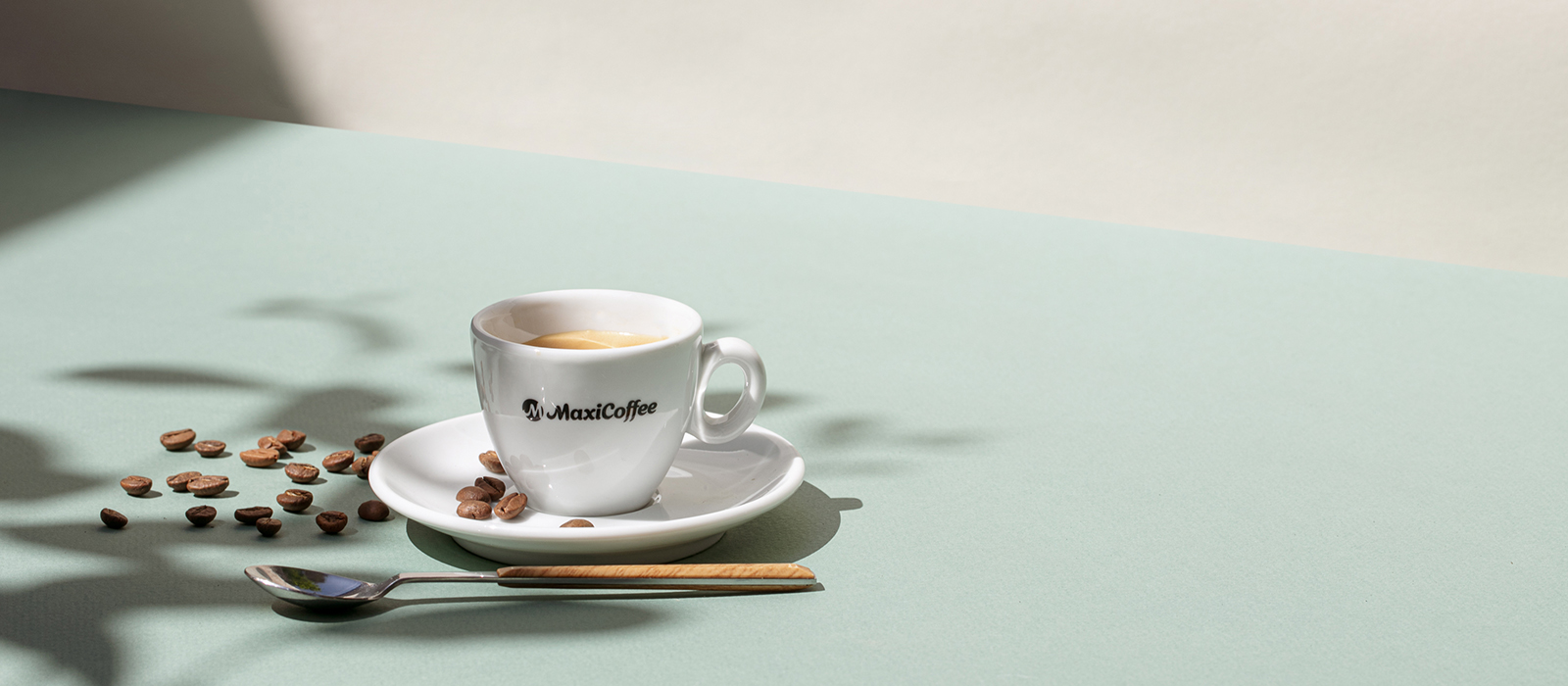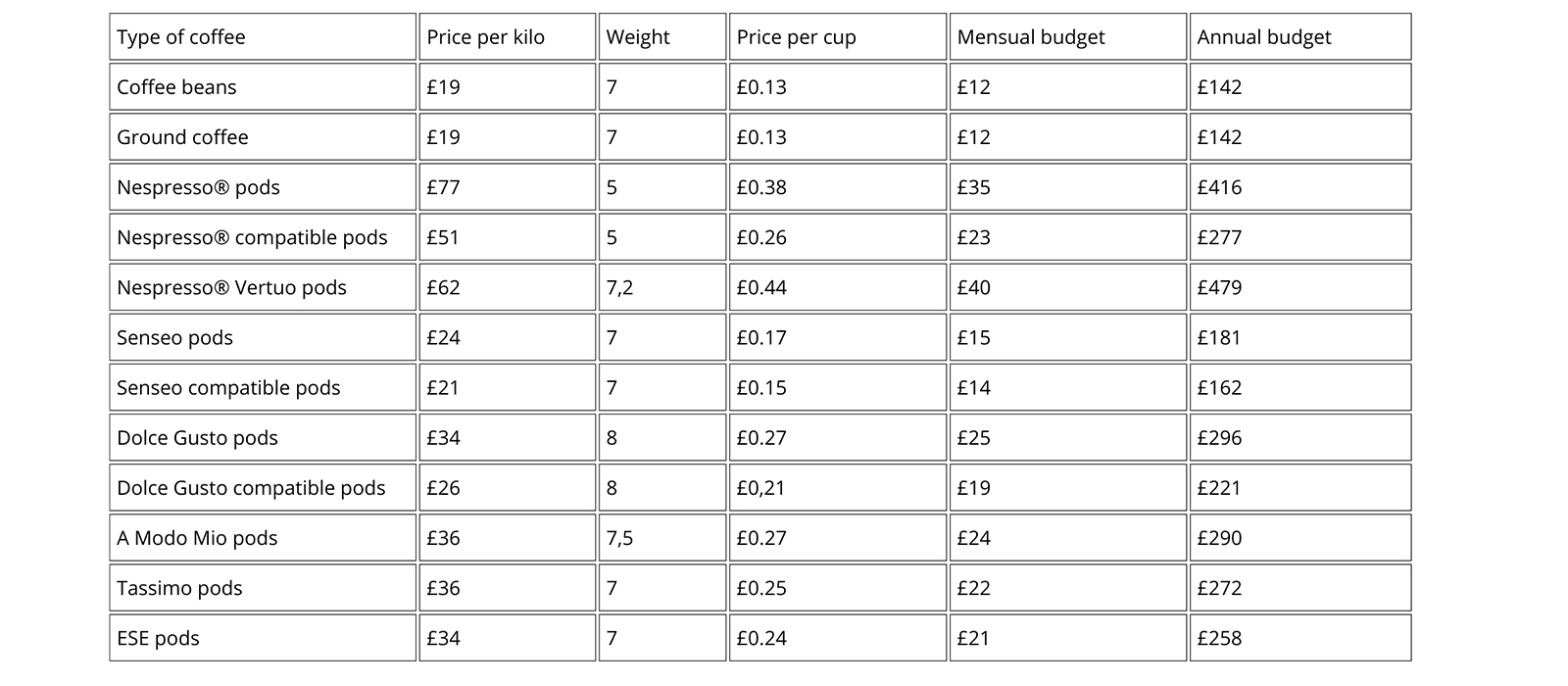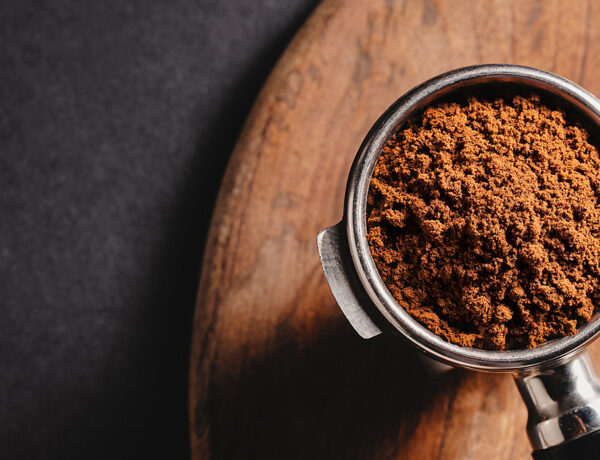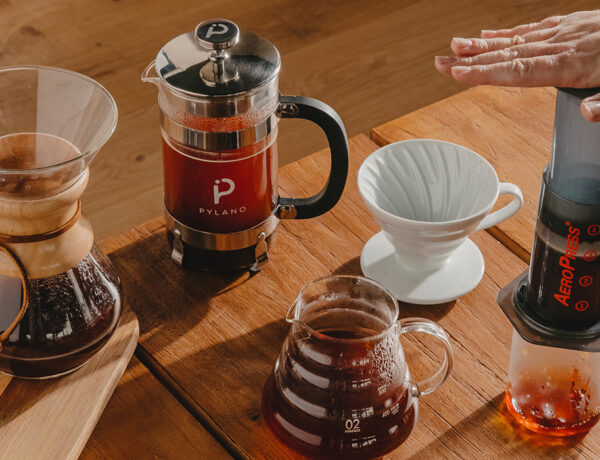
- Home
- Coffee price : How much does your cup of coffee cost?

Coffee price : How much does your cup of coffee cost?
Written by Chloé
Reading time 4 minHave you ever wondered how much your daily cup of coffee really costs? The price of coffee is a huge question. In fact, what is the difference between the price of coffee beans and the price of coffee in Nespresso® capsules? Is it better to go to a supermarket to find the right price for coffee? How do you drink it? Ground? Whole beans? We’ll answer all your questions about the price of coffee.
HOW MUCH DOES A GOOD COFFEE COST?
What is the price of coffee? You might know the price that you pay for your espresso at the little cafe down the street, but when it comes to pods or coffee beans, you might not know which one is the most profitable. On the coffee market, there are as many prices as there are types of coffee, with prices ranging from a few pounds to several hundred pounds. But how do you find your way around? In this article, we’ll help you by suggesting a minimum price, which for us refers to the average price of good coffee. Below this price, we cannot guarantee that these coffees respect the quality criteria and the coffee industry. Also bear in mind that a pod contains an average of 5.5g of coffee, while an espresso at a cafe contains around 7.5g.
Quality is largely determined by the way the coffee is grown. In fact, meticulous sorting, with fewer defects, gives a strong indication of the quality of the beans.
But what is good coffee? It’s a coffee that offers good quality in the cup, while maintaining the value chain and guaranteeing fair pay for the producer. It’s a coffee whose price preserves the coffee industry, coffee production and coffee producer as well, therefore having a positive social impact.
PRICE OF COFFEE ACCORDING TO PACKAGING
With that being said, we established the minimum price for a good 100% Arabica coffee (which is the most commonly consumed), for each format. To do this, we based ourselves on a price survey of all distribution channels. We assumed a consumption of 3 coffees a day, i.e. 90 coffees a month and 1,080 coffees a year, to estimate a monthly and annual budget.
Advantages
- Low cost per cup: Consuming coffee beans costs less than other formats because this format requires the least amount of processing and production stages. The beans are produced, processed, transported and then cooked, whereas other formats require additional steps.
- Rich aroma: Consuming coffee beans means you get freshly ground coffee for a cup rich in aroma and flavour. In fact, once coffee has been ground, even in a protective atmosphere, it oxidises and rapidly loses its flavour characteristics.
Disadvantages
- Cost of equipment: Coffee beans require a grinder or an automatic coffee machine with a grinder. This can be quite expensive. However, it’s easy to see where you stand, as coffee beans cost less and quickly pay for themselves.
Advantages
- An easy-to-use format: The coffee is already ground. You don’t need a grinder to extract your coffee. This saves you time when making your drink.
- Suitable for every use: Most brands offer a grind size for each extraction method. So you can choose the right grind size for the method you use. Pre-ground coffee is easy to access and simple to use.
Disadvantages
Freshness: Once ground, coffee begins to lose its flavour properties more quickly than whole beans. The aromas and oils oxidise more quickly once the coffee has been ground, which can affect the quality of the taste.
Advantages
- Low equipment cost: A capsule machine is relatively affordable. In fact, this type of machine uses simple technology.
- Diversity: The Nespresso® capsule and other compatible brands offer a wide and comprehensive range to suit all tastes.
- An easy-to-use format: all you need is a capsule, a capsule machine and your espresso is ready in less than a minute. It’s a quick and efficient solution.
Disadvantages
- High cost per cup: The capsule costs much more than the machine equipment.
- Freshness of the coffee: Even though a capsule is designed to be airtight and retain maximum flavour, the coffee inside is ground. This means that it will lose its aromatic qualities more quickly.
- Environmental impact: Coffee capsules produce a lot of waste. Individual formats generate a lot of packaging and over-wrapping.
Of course, as with all ‘local’ products, there is a wide range of prices and qualities for coffee beans and capsules. Everyone has their own preference, but I hope you’re in for a wonderful coffee-tasting adventure!
Discover all of our articles



